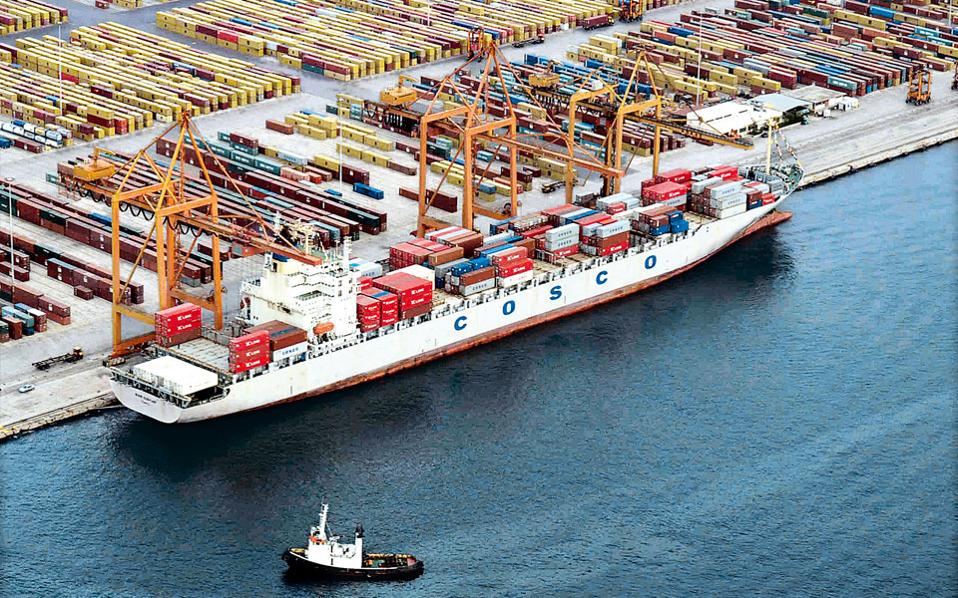In The Nation, Alexander Saeedy investigates the worsening labor conditions at the Port of Piraeus, Greece’s busiest port, since it was sold off to the Chinese shipping firm COSCO in 2016. The sale was a condition of the bailout Greece received from the European Union in 2015, and is part of the ongoing privatization of state assets in the country. As Saeedy reports, longshoremen at Piraeus are working longer hours for lower pay since the sale to COSCO, and much of their work has been shifted to low-skilled, precarious contract laborers. One longshoremen says that what is happening in Greece is a laboratory for the future privatization of public assets across the continent: “Today in Greece, tomorrow in Europe,” he declares. Here’s an excerpt from the article:
As part of the deal, COSCO pledged to participate in financing $410 million worth of investment in the port, including a repair of port equipment and the dredging of Piraeus’s central port. Supporters of privatization argue these improvements signal a coming maritime renaissance at Piraeus—already the busiest port in the eastern Mediterranean. Nektarios Demenopolous, the deputy manager for investor relations at Piraeus Port Authority, told me, “There are 300 million euros [$350 million] of investment to come in the next five years, followed by another 50 million. Privatization has made the port much more dynamic and will reboot activities at the port like ship repair that have been in recession. It will be remembered as a success story.”
But a “success story” for whom? The dockworkers of Piraeus say they and their families have seen little of the alleged gains brought by COSCO. As Piraeus Port Authority boasts of widening profit margins and increasing maritime traffic, wages for dockworkers haven’t budged since they were slashed from 1500 euros ($1,750) per month to 600 euros after the financial crisis. Beyond that, COSCO now hires few dockworkers as full-time employees, and tends to enlist unskilled laborers for complex container unloading. COSCO also primarily remunerates people on an ad hoc basis as subcontractors, leaving dockworkers and their families entirely dependent on the ebb and flow of traffic into Piraeus. It also means their traditional retirement benefits have disappeared.
Image: Port of Piraeus, Greece. Via ekathimerini.com.
